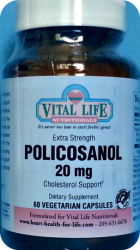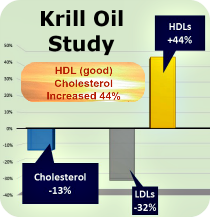Heart Attack Signs and Symptoms
That Could Save Your Life.
Gene Millen, Author - Revised 9/09/14

I'm Gene Millen, your host on this website with my wife Bernie. The year was 1990, but I remember it like it was yesterday. A highly skilled heart surgeon had sawed open my chest, and stitched in bypasses to six clogged arteries.
A six-way heart bypass isn't a record, but it's not bad for a 59-year old who's expecting heart health for life...and it's a whole lot better than a heart attack.
Knowing heart attack signs and symptoms when you see them, or should I say feel them, could keep you from having a heart attack.
The good news is that you learn to recognize heart attack signs and symptoms you can avoid this traumatic and life changing event.
Since my "brush with death", followed by open heart surgery 23 years ago, I have worked with hundreds of people as owner of the Vital Life Health and Wellness Center. Click here to learn more about us.
The most common heart attack symptoms are a feeling of squeezing, pressure, fullness or pain in the center of your chest which lasts more than a few minutes.
It may also include jaw pain, dizziness, nausea, "heart burn" or " indigestion," and fatigue. The pain may go away and come back or spread through your neck, jaw, shoulders, arms or back.
Sweating, nausea, light-headedness, shortness or breath. In women, chest pain may be mild and other symptoms may be more vague and occur at rest rather than exercise. Click here for women heart attack symptoms.
Plan ahead to keep heart attack symptoms at bay
Drugs called thrombolytics, when given within 6 hours, may help stop a heart attack and minimize lasting heart damage.
- Decide now on the closest medical center that offers 24-hour emergency cardiac care.
- Keep local emergency numbers and the hospital phone number posted near your phone and tell family members what to do and where to call.
- Learn cardiopulmonary resuscitation (CPR).
- Learn it if you have a family member who's at risk for a heart attack, and encourage family members to learn it if you're at risk.
Contact the American Red Cross or local community centers or fire stations to find CPR courses in your area.
ACT QUICKLY as soon as any sign or symptom
of a heart attack arrives!
Fast action is your best weapon against a heart attack.
Why? Because clot-busting drugs and other artery-opening treatments can stop a heart attack in its tracks.
A heart doctor can prevent or limit damage to the heart, but they need to be given immediately after symptoms begin. The sooner they are started, the more good they will do, and the greater the chances are for survival and a full recovery.
To be most effective, they need to be given ideally within 1 hour of the start of heart attack symptoms.
If you're having heart attack symptoms call 911 and tell the operator you think you may be having a heart attack.
Don't "Tough it Out" When You Notice the
First Sign or Symptom of a Heart Attack!
Don't call your doctor's office and wait for a call back or just hope for the best.
The risk is too great and life is short enough as it is.
Chew an adult aspirin or crush and drink it dissolved in water for faster absorption. Aspirin may help restore some blood flow through clogged arteries.
Lie down. It's almost always best to wait for the ambulance rather than having someone drive you to the hospital (don't drive yourself).
We wish for youNo Heart Attack Signs or Symptoms and Vital Heart Health for Life!
Related Articles
Heart Attack PreventionHeart Health for Life
Causes of Heart Attacks
Cholesterol and Heart Disease
Cure Heart Disease With Exercise
Women Heart Attack Symptoms
Ten Tips to Lower Blood Pressure Instantly
The Best Alternative for Lipitor
Clinical Studies - References
- Heart. org
- The American Heart Association Interactive Cardiovascular Library has excellent images of the progression of heart attack symptoms.
 Policosanol beat statin
Policosanol beat statin 